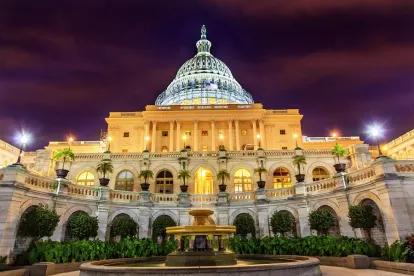On March 11, 2021, President Biden signed into law the American Rescue Plan Act of 2021 (the “Act”). As part of the almost $2 trillion in relief, the Act contains provisions creating a temporary subsidy for premium payments for extended health care coverage under the Consolidated Omnibus Budget Reconciliation Act of 1985 (“COBRA”), as well as increasing the income exclusion for employer-provided dependent care assistance programs in 2021.
As group health plans will likely see an increase in COBRA continuation coverage elections as a result of the COBRA premium subsidy, group health plan sponsors and plan administrators should ensure they are complying with the complex administrative requirements under recent guidance from the Department of Labor, Department of the Treasury and Internal Revenue Service (collectively the “Agencies”) requiring group health plans to disregard certain timeframes and deadlines related to: (a) HIPAA special enrollment, (b) COBRA elections and premium payments, (c) claims procedures and (d) external claims review. Specifically, plan sponsors and plan administrators should be aware that EBSA Disaster Relief Notice 2021-01 (“Notice 2021-01”) recently clarified the Agencies’ position regarding the expiration of these extended deadlines which most in the industry believed were set to expire by operation of law effective February 28, 2021. In Notice 2021-01, the Agencies instead take the incredibly administratively burdensome position that the extensions of the employee benefit plan related deadlines described above apply on an event-by-event basis. In other words, the Agencies are taking the position that plan administrators are required to extend each individual deadline described in the original guidance on an individualized basis. However, if the “Outbreak Period” (as defined in Notice 2021-01) ends before such one-year extension periods expire, the original timeframes for individuals and plans with periods that were previously disregarded will begin to run 60 days after the announced end of the COVID-19 National Emergency. See our prior update for more complete information regarding these extended deadlines.
COBRA Premium Subsidy
Eligibility. Section 9501 of the Act provides that for the period between April 1, 2021, and September 30, 2021, COBRA premiums payable during such period will be treated as paid for all “assistance eligible individuals.” These individuals are defined as “qualified beneficiaries” under ordinary COBRA rules who are eligible for COBRA continuation coverage solely by reason of involuntary termination of employment (other than for gross misconduct) or reduction of hours.
If an assistance eligible individual would have been eligible for COBRA coverage during the above period but for such individual’s failure to elect COBRA or failure to make COBRA premium payments, the Act provides that such individuals will be eligible to elect COBRA coverage during the period beginning April 1, 2021, and ending 60 days after receipt of a notice of this election period as described further below. What is unclear from the guidance, however, is how this COBRA election will coordinate with the rules for retroactively electing COBRA pursuant to the Agencies’ previous guidance described above.
Individuals will cease being eligible for the premium subsidy on the earlier of when (i) their COBRA coverage would ordinarily expire (including for those individuals who took advantage of the opportunity to re-elect COBRA coverage); (ii) their becoming eligible for coverage under another group health plan (other than coverage consisting only of excepted benefits, coverage under a health flexible spending arrangement, or coverage under a qualified small employer health reimbursement arrangement), or Medicare; or (iii) September 30, 2021. Individuals will be responsible for notifying the employer of their becoming eligible for other coverage. Failure to do so, could subject these individuals to penalties.
Employers may allow “assistance eligible individuals” to switch the coverage option that the individual initially elected at the time of their COBRA qualifying event, provided that (i) the premium for such other coverage is not more expensive than the premium for the coverage in which the individual was enrolled at the time of such termination or reduction of hours and (ii) such other coverage is also offered to similarly situated active employees at the time the assistance eligible individual elects to enroll. Individuals have 90 days from the receipt of notice of this relief to make such an election, but employers are not required to make such relief available.
If an individual who is eligible for the subsidy makes a COBRA premium payment, the employer must reimburse the payment to the individual within 60 days of its receipt.
Notice Requirements. The Act also imposes a number of new COBRA notice obligations for COBRA qualifying events occurring on or after April 1, 2021, for example:
-
COBRA notices must contain special provisions outlining the enacted relief.
-
Employers are required to send out notices to assistance eligible individuals who previously terminated employment or who previously experienced a reduction of hours no later than 60 days after April 1, 2021.
-
Employers must also notify individuals who are “receiving” the premium subsidies of the pending expiration of the subsidy. This notice must be provided no earlier than 45 days, and no later than 15 days before the date of expiration. Importantly, no notice is required for individuals who are no longer eligible for the subsidy by reason of being eligible for other coverage.
The good news is that the Departments of Labor, Health and Human Services and Treasury have been instructed to provide model notices to satisfy the above requirements. The model notice on the availability of relief should be available within 30 days. In the meantime, employers who utilize the services of a third-party COBRA administrator should begin coordinating with their administrator to confirm that they will be providing the required notices and any information that the employer may need for purposes of claiming the credits described below.
Employer Credits. Employers who comply with the notice requirements will be eligible to receive a credit for the COBRA premiums that are subsidized. The maximum credit per quarter is limited to the Medicare payroll taxes for such quarter and is reduced for any other credits received by the employer under the paid sick leave credit (Internal Revenue Code Section 3131), the paid family leave credit (Internal Revenue Code Section 3132) and the employee retention credit (Internal Revenue Code Section 3134) for such period.
Although the credit is refundable and may be advanced, employers may simply choose to not deposit the amount of Medicare payroll taxes that they anticipate will be refundable via the credit. Any overstatement of the credit will be treated as an underpayment of taxes and may be assessable up to 5 years after the filing of the employer’s tax return which includes the credits. The amount of these credits will constitute gross income of the employer. We anticipate further guidance being issued with regard to how the credit process will operate.
Increased Income Exclusions for Dependent Care Assistance Programs
For 2021, Section 9632 of the Act also increases the income exclusion for employer-provided dependent care assistance programs from $5,000 to $10,500 for individuals who are married and file a joint tax return. In the case of an individual who is single or married and who files a separate tax return the amount is increased from $2,500 to $5,250. Cafeteria plans (or “section 125 plans”) and separately written dependent care assistance programs may be retroactively amended to comply with the new provisions by the last day of the plan year for which the amendment is effective, provided the plan is operationally compliant throughout the period from the effective date of the amendment to the adoption of the amendment. Note, the increased exclusion amounts remain subject to annual nondiscrimination tests, therefore employers will want to take those tests into consideration when deciding whether to permit highly compensated employees to increase their dependent care elections.







 />i
/>i
